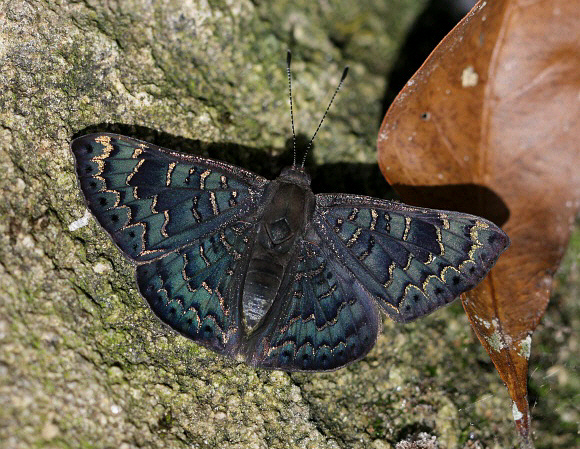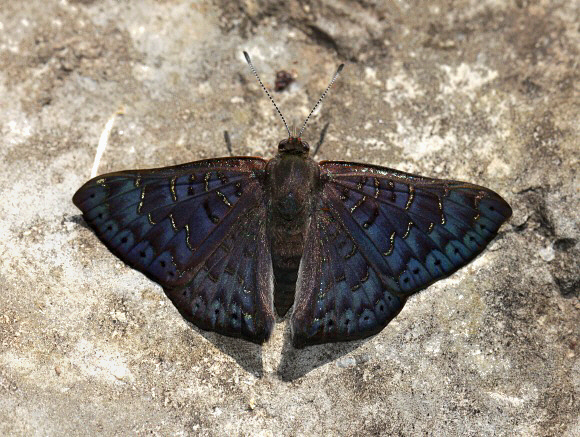 Emesis orichalceus male, Satipo, Peru – Adrian Hoskins
Emesis orichalceus male, Satipo, Peru – Adrian Hoskins
Introduction
There are 41 described species in the genus Emesis, most of which are brownish in colour, marked with a pattern of short wavy lines. Some species can be difficult to tell apart, but orichalceus is one of the more distinctive and easily identified species, whose dull metallic blue-green wings are ornamented with glistening silver markings.Emesis orichalceus appears to be restricted to the eastern Andes of Peru and Bolivia, and the Mato Grosso region of Brazil.
Habitats
This species is found in primary rainforest and transitional cloudforest habitats, at altitudes between about 400-1000m.
 Emesis orichalceus male, Satipo, Peru – Adrian Hoskins
Emesis orichalceus male, Satipo, Peru – Adrian Hoskins
Lifecycle
I have no information specific to orichalceus. The eggs of Emesis species are typically white and highly sculptured. They are laid singly or in clusters of up to 30, according to species. The known larval foodplants encompass the families Ranunculaceae, Euphorbiaceae, Rhizophoraceae, Sterculiaceae, Anacardiaceae and Nyctaginaceae.
Adult behaviour
Males are usually encountered singly, imbibing moisture from damp sand. They only appear to be active in hot sunny conditions, and even then are decidedly placid and sedentary in behaviour.
